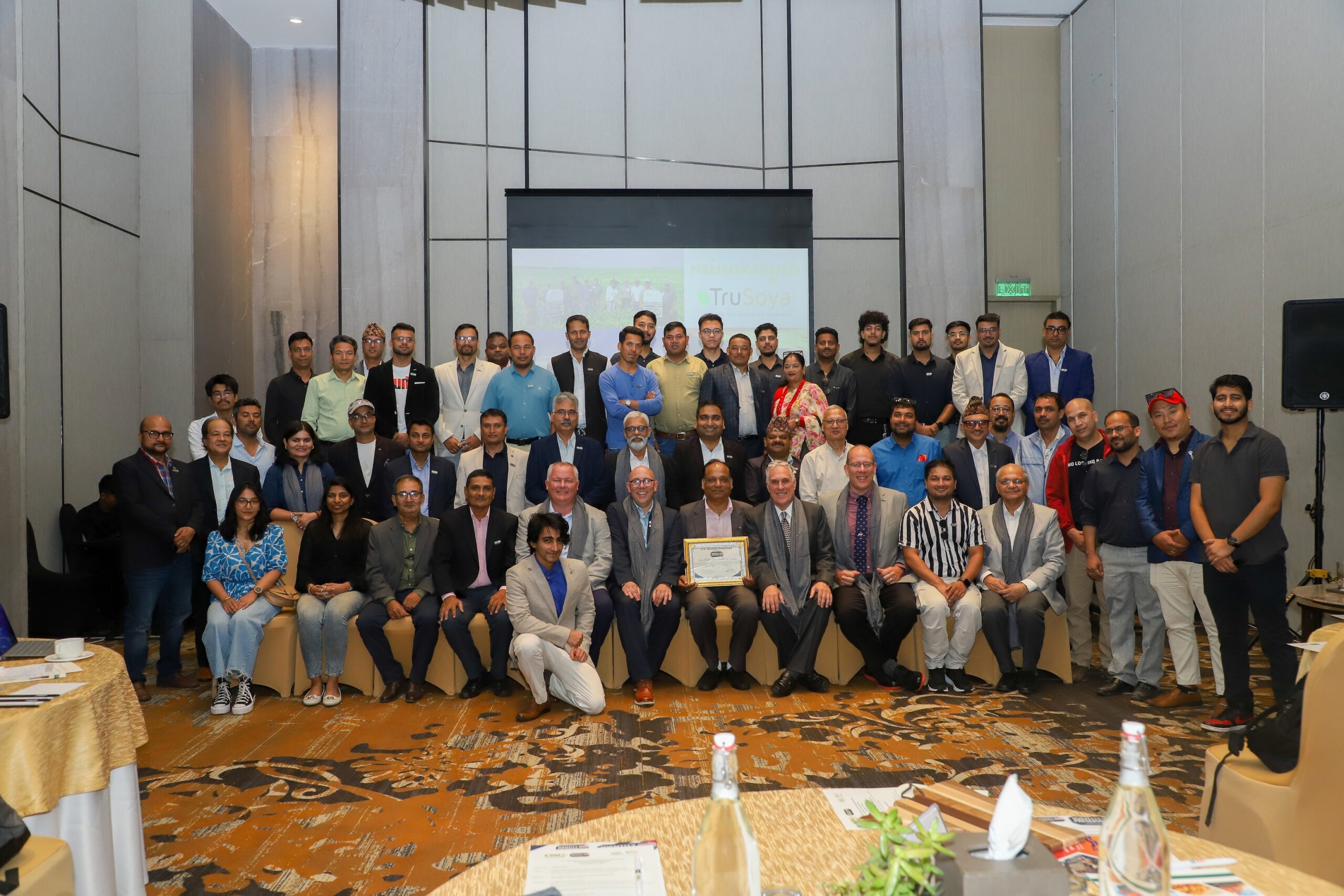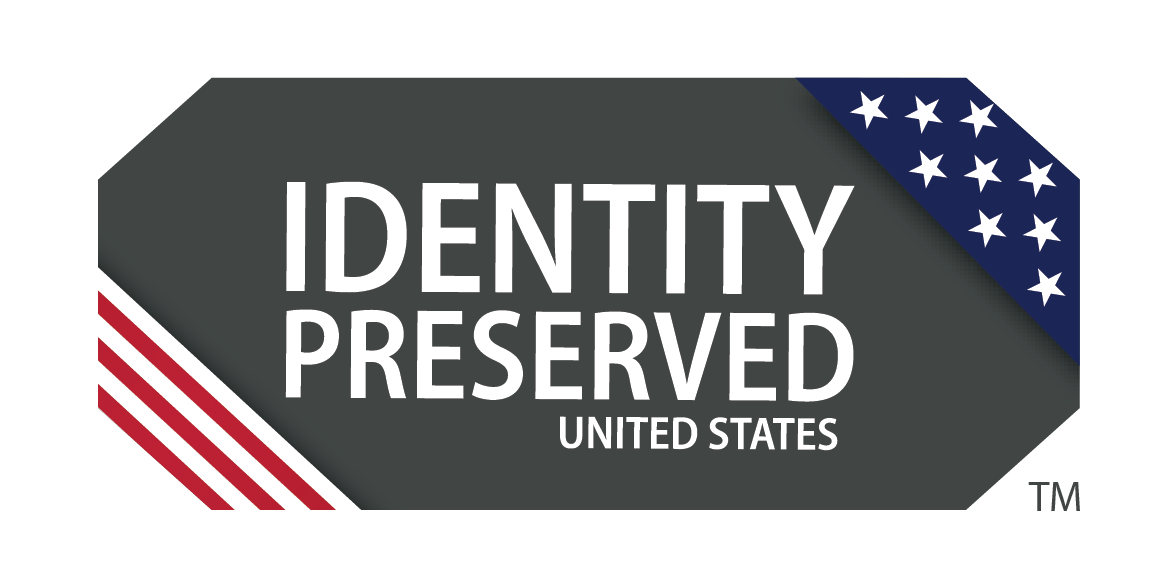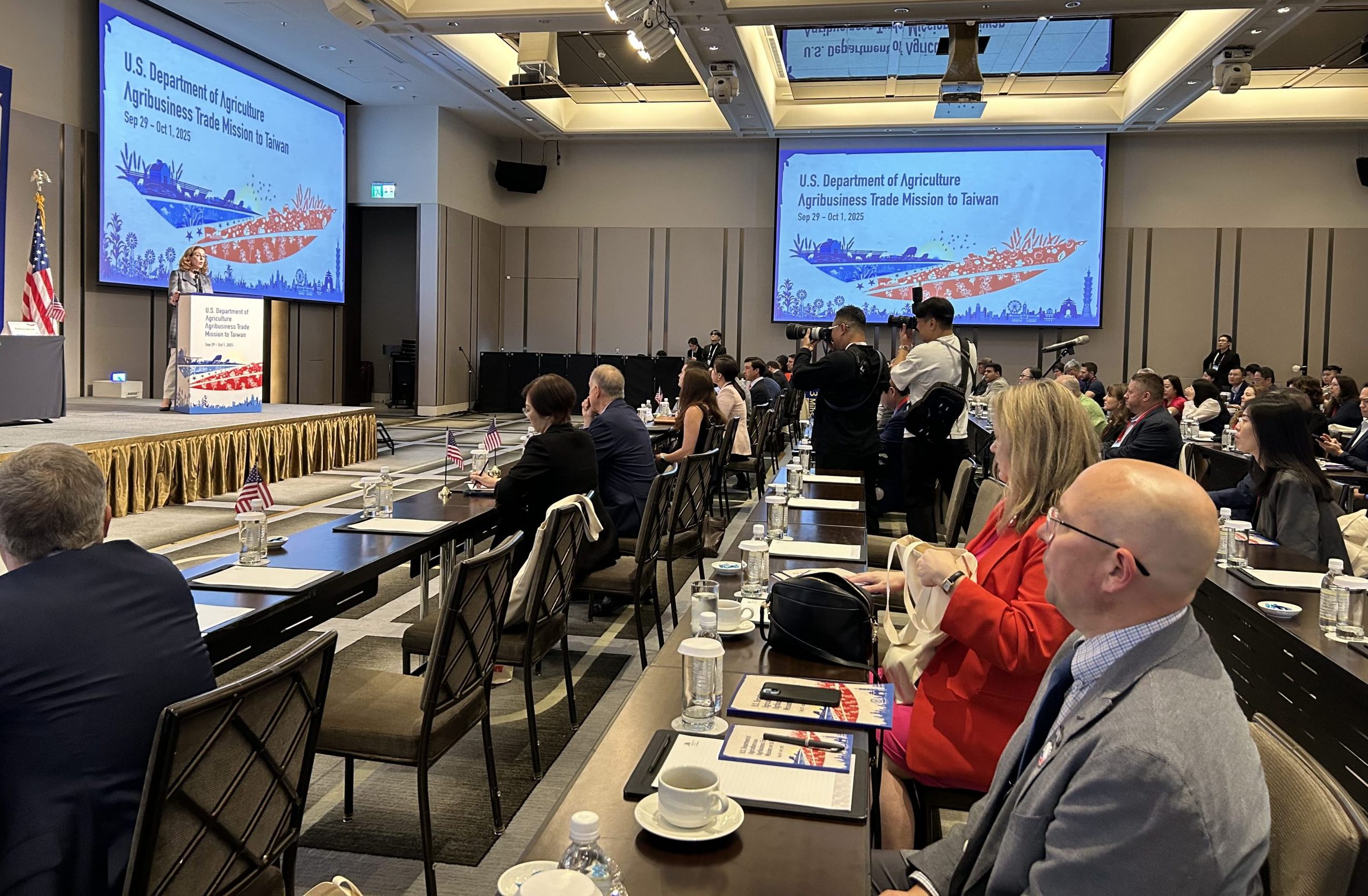
A delegation representing SSGA and U.S. Identity Preserved helped make history in Nepal in September.
Not only did they award a certificate to Shree Radne Rani International Trading, one of the first international companies to use the U.S. Identity Preserved brand mark on their retail packaging and marketing materials, SSGA also made inroads with other soy food manufacturers during retail market visits and at the U.S. Identity Preserved International Workshop.
The SSGA delegation, which included Manager of Strategic Programs Shane Frederick, IP Technical Consultant Rob Prather, Minnesota farmer Tom Frisch and SSGA’s South Asia Technical Advisor Philip Shull, visited several soy food manufacturers and retail markets where they saw U.S. identity preserved soybeans used in various soy snacks such as fried and roasted snack mixes, soy nuts, tofu, soy flour and more.
The tours were led by Gaurav Agrawal, director of Shree Radne Rani International Trading, the first South Asia importer of identity preserved soybeans from the U.S., which arrived in March 2024.
Companies, including over four decade-old stores and shops, have given high praise to using identity preserved beans, reporting more consistent bean size, better taste and feel and high protein. Economic efficiencies have been another noted benefit, including a ready-to-make quality that eliminates extra cleaning and sorting.
“In just a few months since the first container of U.S. IP soybeans arrived in Nepal, consumers are already reporting differences in taste and quality, while manufacturers are seeing results in production efficiencies,” Frederick said. “They could hardly wait to show off the origin of their new ingredients.”
SSGA ended its time in Nepal by hosting an U.S. Identity Preserved International Workshop, with U.S. Soybean Export Council as a partner, along with support from the Minnesota Soybean Research & Promotion Council (MSR&PC), Missouri Soybeans, North Dakota Soybean Council and Wisconsin Soybean Marketing Board. The workshop featured more than 70 attendees, including Nepali soy food manufacturers, traders and related organizations. Media in attendance included The Kathmandu Post, The Himalayan Times, Kantipur, and Himalayan TV.
Presentations during the workshop outlined the growing process and value of identity preserved crops and its potential in Nepal’s food and beverage sector. Soy food consultant Nishith Kumar led manufacturing demonstrations and sampling of soy foods made with the very first shipment of U.S. identity preserved soybeans that were delivered to Nepal in March. Dr. Suresh Itapu discussed valued added products from whole identity preserved soybeans and Sumit Agarwal of the Soy Food Processors Welfare Association highlighted the value of partnerships among soy food processors.
“I enjoyed being here listening to all the speakers talk about how much IP soybeans mean to them, from food safety and security to nutrition, growing U.S. IP soybeans is a little bit more time consuming and labor intensive but it’s worth it to supply the world with a high-quality, high-protein product,” said Frisch, who serves as MSR&PC chair and spoke about growing identity preserved crops at the workshop. “It’s great to see firsthand the important work SSGA does throughout the world on behalf of Minnesota soybean farmers.”

